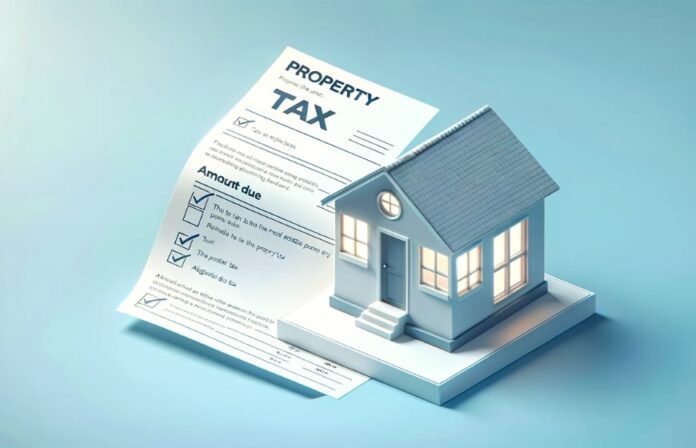ISLAMABAD — As a relief to Pakistan’s real-estate sector, the federal government has decided to abolish the 3% federal excise duty (FED) on the first sale of all immovable properties, less than a year after introducing the measure. The move, confirmed by senior officials of the Federal Board of Revenue (FBR) to The Express Tribune, is expected to come into effect within April, pending cabinet and legislative approvals.
The decision follows mounting pressure from the real-estate sector, constitutional challenges, and consultations with the International Monetary Fund (IMF), whose special budget mission is expected in Pakistan on May 14 to vet the FY2025–26 federal budget.
The federal excise duty on property sales was introduced in the FY2024–25 federal budget, imposed on the first sale or allotment of residential and commercial properties — including apartments, houses, and plots. The rates were structured as follows:
| Buyer Type | FED Rate |
|---|---|
| Filer | 3% |
| Late Filer | 5% |
| Non-Filer | 7% |
This duty was collected at the time of booking, allotment, or transfer, and was applicable nationwide. However, the problem was twofold:
- Legal Ambiguity: Real estate and immovable property fall under provincial jurisdiction, according to the Constitution. Imposing a federal duty on such transactions raised legal questions. Several industry players and buyers challenged the tax in courts.
- Economic Impact: Unlike withholding tax — which can be adjusted against annual tax liability — the FED was non-adjustable, effectively increasing the cost of property purchases. It was a means to discourage investors and developers, slowing down the market.
According to FBR spokesperson Dr Najeeb Memon, the Prime Minister’s Task Force on Housing strongly recommended abolishing the FED, citing both its constitutional grey area and the negligible tax collection since its implementation. Real-estate authorities across provinces refused to process transfers that included the FED, leading to a logjam in registrations and reduced state revenue.
Finance Minister Muhammad Aurangzeb has already signed off on the proposal, and a summary to amend the Federal Excise Act has been initiated. The cabinet is expected to approve the change within weeks.
While the IMF has not officially commented, the repeal comes ahead of sensitive budget discussions with the lender. The government is walking a tightrope — trying to meet revenue targets while avoiding growth-stifling measures, especially in politically sensitive sectors like housing.
What was the broader taxation landscape?
The FED wasn’t the only new tax introduced last year. In a bid to raise revenue quickly, the government had also:
-
Imposed a flat tax on large homes and farmhouses in Islamabad:
-
Rs1 million for homes between 1,000–2,000 sq. yards
-
Rs1.5 million for homes over 2,000 sq. yards
-
Rs500,000–1 million for farmhouses between 2,000–4,000 sq. yards and above
-
-
Introduced a 4% stamp duty on property transactions in Islamabad
-
Levied a 10% income tax surcharge on individuals earning Rs10 million or more annually
With the economy slowing and real incomes shrinking, these taxes drew strong backlash — especially from real estate brokers and developers. The surcharge and property taxes were seen as punitive and regressive, and the government is now considering rolling them back as well partially or fully in the coming budget.
The repeal of the 3% FED is being viewed as a first step toward untangling the complex and sometimes overlapping taxation structure on property in Pakistan. The PM’s Task Force on Housing has proposed a series of broader reforms, including:
-
Abolishing the ‘deemed rental income’ tax on properties (based on unrealised rental value)
-
Rationalising and standardising stamp duties across provinces and Islamabad
-
Eliminating Capital Value Tax (CVT) in Islamabad
-
Revising property valuations every three years to reflect market realities
-
Introducing tax breaks for low-cost housing, first-time buyers, and public-sector allotments
-
Reverting capital gains tax (CGT) to a slab-based system
-
Reducing taxes on construction materials to boost housing affordability
Experts say that while the repeal of the FED is a welcome relief, the broader malaise in the real estate sector — inflated prices, fragmented regulations, and over-taxation — will not be cured by one measure alone. “This decision at least removes an unconstitutional hurdle,” said Ahsan Malik, a real estate dealer and member of the PM’s Task Force, “but reviving real estate needs a consistent, investment-friendly policy for the long term.”
The government is torn between IMF revenue targets and political backlash. The upcoming budget, expected around June 4 or 5, will reveal how far Islamabad is willing to go to restructure the tax system without upsetting the IMF.
For now, buyers and developers have reason to cheer — and the market, some hope, may finally show signs of life.






















